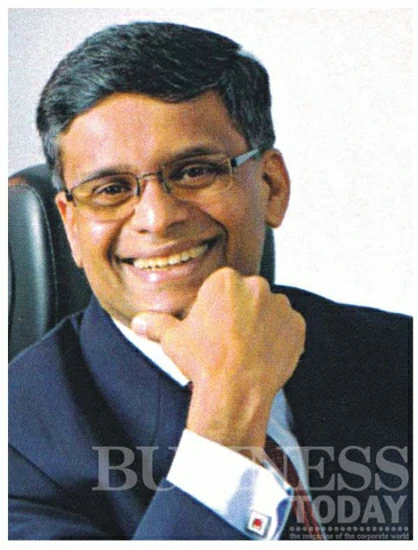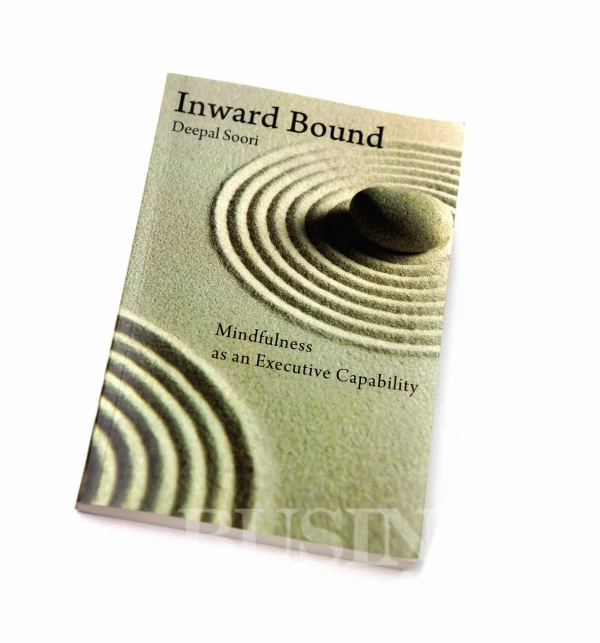
Having started his career as a clerk in a shop, Deepal Sooriyaarachchi’s rise to the top of the corporate world as the CEO of a blue chip corporate and finally retiring early as the Managing Director of Aviva Insurance enabled him to gain many experiences by overcoming countless challenges. Through his extensive and eventful career Sooriyaarachchi continuously experimented with the age-old wisdom of the East, especially teachings in Buddhism could be incorporated to the prevalent business world and as a result
he authored Inward Bound: Mindfulness as an Executive Capability which explores how Mindfulness could be employed in the field of business leadership.
To speak of mindfulness which is in the realm of spirituality and meditation, are you a meditation or mindfulness guru?
Well, I am far from being a guru in that sense, but I would call myself a seasoned corporate executive who has been able to
integrate mindfulness practice into my life for over thirty years and benefitted from it immensely.
You started your career as a sales clerk in a shop earning less than 10 USD a month and ended as the Managing Director/CEO of Aviva Sri Lanka before you left your full-time engagements in the corporate world. Do you see any connection between your success and practicing mindfulness.
I would attribute my practice as the single most influential reason for my career success. I was fortunate enough to get introduced to the practice of mindfulness very early, almost around the time I got my first job. I continued my practice of mindfulness ever since. Looking back I can say that it helped me to be more aware about myself, my strengths and weaknesses, I could relate better to my superiors, co-workers and customers. I found it easy to build relationships, and that all my stakeholders trusted me. In most challenging moments and in moments of ambiguity I could approach those situations with a space so my views were more objective than otherwise.
I increasingly became a good observer.
This practice helped me to be in command over myself most of the time.
How did you come across this practice so early in life and what made you integrate it to your work life?
It was sheer luck and coincidence. It is this age in life you explore new things. Even in a country like Sri Lanka at that time, it was not common for persons in the business world to explore things like meditation. It was only for those who are highly spiritual or old. I was fortunate to get an opportunity to join a retreat on mindfulness meditation and somehow got attracted to it first obviously for the serenity that you gain but later I found that it gave me much clarity about what I think and what I do. I realised that I can learn so much about myself by being aware.
The first discovery was that I was able to manage my anger better. And that indeed was one of the first benefits since I was a bit of a quick tempered person. As I kept practicing mindfulness in my daily life as well as whenever I got opportunities to do some formal practice, I found it becoming my new way of being. I think those who interacted interacted with me noticed it and they commented. Then I kept learning more about mindfulness which in fact was discovering myself deeper. I found that to be a skill like any other and diligently worked on it. I am glad I did.
Even in my personal life I benefitted from this practice. Especially in my marriage where my wife got a chronic back condition. It was definitely the practice of mindfulness that helped us in our relationship and how she herself copes with pain. I became more sensitive and responded to life rather than reacting mechanically through habit.
We keep saying mindfulness but what exactly is this?
One of the easiest ways to understand mindfulness is realising what it is not. We are very familiar with mind wandering. In this age, which is dominated by digital devices it is very easy to allow the mind to wander. Even when we sit together for a meal we allow our attention to drift away to get connected with everybody else in the world, apart from the persons we are with at the time. If you have had any accidents or near accidents while driving, chances are that in most of those occasions your mind would not have been fully-engaged in driving. In fact there is research done on accidents and there had been a direct link with mind wandering.
If that happens while driving, how much can that happen in work situations?.
The first aspect of mindfulness is keeping the mind at the task at hand and the other aspect is watching the functioning of your own mind in a calm and detached manner, what we call “wordless bare attention” so you can gain insights into your own behaviour.
The goal is establishing awareness. For example if I stop speaking… suddenly… and… keep silent what happens to your mind? You develop an eager attention without any words as to what would be my next word. That is awareness!
This Is A Skill The Business Executives Of Today Must Have Because That Will Help Them Be More Focused, Become More Aware Of Themselves, Their Strengths And Weaknesses, Become More Sensitive About The Others In Partnerships, Develop Clarity Of Thought To Look At The World Afresh…
When we can observe ourselves with such a space within, we become fully aware of our true motives, of our actions and we begin to function using a kind of new operating system which is different from the traditional mode of habitual reaction. While practicing mindfulness improves our ability to focus, and gain some serenity in mind the true benefit is the ability to learn from our own lives, learning how to let go of those thoughts that drag us down and enjoy freedom.
You mentioned that being mindful as a skill?
What is a skill? It is an ability that can be developed by practice. All those who can speak can sing. But only those who found good teachers or coaches and had interest can develop this ability to a degree that can be called a skill. Similarly to know what goes in our mind, to become aware of what we think, this is an ability everyone has. But by constantly practicing it in a certain way using techniques, one can master it to a very fine degree. That is why I call it a skill.
Certainly this is a skill the business executives of today must have because that helps them be more focused, become more aware of themselves, their strengths and weaknesses, become more sensitive about the others in partnerships, develop clarity of thought to look at the world afresh, to be more creative and able to cope with various demands on them. If you are mindful, you can bounce back better, manage conflicts better, most importantly keep cool under stressful situations, and be one’s own coach and motivator when drifting away.
How do you develop this skill?
First step of this skill development is learning to bring your mind to the present moment. A moment cannot be noticed until something happens. The easiest methods can be found in early Buddhism given as a method for achieving the fivefold goal of; purification of the mind, overcoming sorrow and lamentation, overcoming pain and grief, treading the right path leading to attainment of eternal peace, and attaining happiness.
However now there is scientific evidence as to the effectiveness of mindfulness practices. The current literature based on neurosciences suggests that constant practice of bringing the mind back to the present moment is similar to training a muscle by repeating the same movement to strengthen it. Therefore in order to develop mindfulness, it is important to develop the ability to bring the mind constantly back to the present moment even if the object is not so exciting.
To develop this ability we can use any of our routine activities to bring the mind back to that activity every time the mind wanders. However one of the most common practices is observing breath, since it is an object that is available all the time and not so exciting objects. But this is not the forceful, conscious training of breath. We simply use breath as the object to draw the mind’s attention to something that happens right now.
It helps to practice this in a formal sense initially, first a few minutes a day and if you can find time by attending a retreat over a weekend or a few days. But the important thing is amalgamating the practice to the daily life. One of the best books to read is “Mindfulness in plain English by Bhanthe Gunaratana”
How do you know that you are doing this right, it sounds so simple
The proof of the pudding is in the eating! You are the best judge to know whether you are benefitting from the practice or not. Firstly you will find it is not easy to observe the breath. The mind will wander. You will then learn that the best way to get the mind to focus on the present moment is by allowing it to settle down by just observing the turmoil without getting involved and interfering with what happens. It is like a glass of water contaminated with dirt and mud. If it is kept long enough undisturbed, the dirt and mud will settle down and the water will be clearer. Similarly when we learn to just observe without interfering, the mind will become quiet and then it is easy to observe the breath. But the moment you realise the mind is wandering, you slowly find where you feel your breath. Keep repeating to bring your mind to the present moment.
With this ability becoming the way you operate, you will realise how you are able to respond to life situations from a stable inner calm rather than routine reactions. You will feel happier and gain much more joy from what you do and get more out of your day than before.






